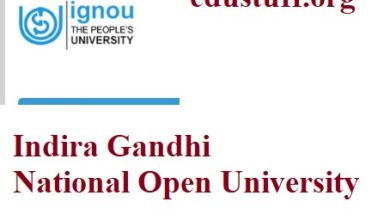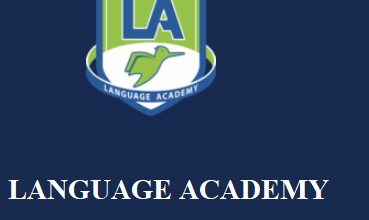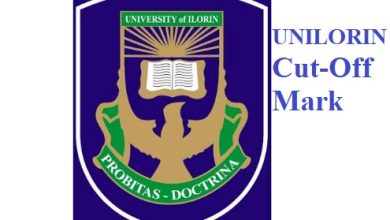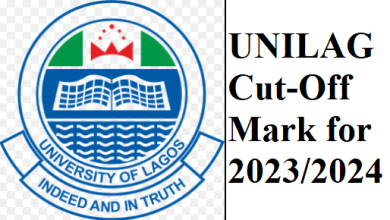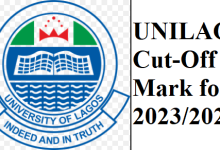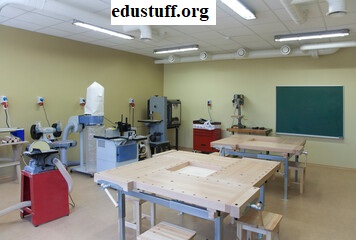
Technical Schools in Lagos
Technical Schools in Lagos
You’ve come to the correct place if you’re seeking information about the best technical schools in Lagos, Nigeria. Continue reading to find out more.
Technical education is an essential pillar of any society. Indeed, one of the most important factors for industrialization is technical expertise, which is critical to economic progress. In general, technical institutions prepare students with specific methods to develop their technical talents.
Although the normal technical school programme is often shorter in duration than a university degree, the instruction is frequently more practical.
Recommended content: Best Secondary Schools In Lagos
Top Technical Schools in Lagos
- IKOTUN GOVERNMENT TECHNICAL COLLEGE
The Lagos State Government has pioneered the establishment of high-quality technical colleges in Ikotun. The College is well-known for producing exceptional technicians and artists.
Courses include block laying, concreting, electrical installation and maintenance, furniture craft, and mechanical engineering. These programmes are full-time and take three years to complete.
- YABA FEDERAL SCIENCE AND TECHNICAL COLLEGE (FSTC)
FSTC is a renowned technical school in Lagos that was founded in 1948 with only 40 students. This college, on the other hand, has produced thousands of technicians over the years.
FSTC is primarily an engineering institution that provides courses in Mechanical Engineering, Fabrication and welding skills, and foundry craft. Graduates receive one of the following credentials, depending on the course style and duration: National Basic Certificate (NBC), National Technical Certificate (NTC), Advanced National Basic Certificate (ANBC), Advanced National Technical Certificate (ANTC), and Craft Training Certificate (CTC).
Technicians and artisans who graduate from FSTC commonly find rewarding careers in manufacturing, production, defence, and agro-mechanized industries.
This college has an intriguing aspect in that it functions as a mentoring ground for students who want to continue their studies in a university setting after their programme. Their tutors are frequently trusted course consultants.
- FEDERAL COLLEGE OF EDUCATION (TECHNICAL), AKOKA
This is a branch of FSTC. It was founded in 1967 when it became clear that there was a need for instructors to be trained in technical, vocational, and commercial academic areas. The FCE(T) is associated with the University of Benin, and the college has National University Commission approval. They provide the Nigeria Certificate in Education (NCE) as well as a bachelor’s degree in technological education.
- INSTITUTE FOR INDUSTRIAL TECHNOLOGY
The African Development Foundation owns IIT, a private male technical school in Isheri North, Lagos. In May 2006, the Lagos State Ministry of Education approved the institution.
IIT’s objective is to provide technical vocational education and training, particularly to youngsters from low-income homes, to make them useful to their families and society as a whole.
Electromechanics, mechatronics, and electromechanics are among the programmes available.
Electrics, electronics, and industrial automation are all topics covered in electromechanics. This course is open to recent high school graduates.
Mechatronics, on the other hand, is a high-level automation course that both new graduates and experienced technicians can benefit from. The mechatronics course lasts 5 months for graduates and 2 years for high school graduates.
IIT also offers a course in electrotechnology. It includes electrical, electronics, and automation trades and is appropriate for power sector specialists.
Technicians and engineers can also take refresher courses at IIT. Courses in pneumatics and valves, electro-pneumatics, boiler and pump repair, and compressor operation and maintenance are among those available.
They also have particularly prepared courses for company employees that are geared to the organisation’s specific needs. Typically, these customised courses last only one week. IIT also offers consulting services to a variety of sectors.
Furthermore, IIT provides students with practical training through partnerships with firms such as Cadbury, Nigeria, Guinness Nigeria, Promasidor Nigeria, GSK, BUA, Seven-Up Bottling Company, and many others. This collaboration provides IIT students with the ideal environment for hands-on training and practical experience.
When applying to IIT, there are three stages of exams to pass before being admitted. The aptitude test is the initial step, followed by a faculty interview and a management interview.
Every year, at least 500 individuals enrol in the various courses offered by IIT, and one distinguishing feature of IIT graduates is their ability to find work quickly following graduation.
Recommended content: Best Federal University In Nigeria
What You Should Know About Technical Schools
Technical colleges are among the schools that serve as a viable alternative to university education. These above maned schools are located around the country in various states. They are classified as technical institutes, thus they adhere to all of their classifications. Their role is to provide students with job-related skills.
Students or graduates of schools who did not meet the admission requirements for universities may attend any of the Technical Colleges. This is due to its lower admission requirements when compared to universities.
One advantage of these schools is that they have reduced the country’s illiteracy rate. Other advantages include reduced unemployment and the provision of appropriate workers to operate in various economic sectors.
Recommended content: Best Courses to Study in Nigeria
What You Should Know About NBTE
The Federal Government of Nigeria established the National Board for Technical Education (NBTE) in 1977. The NBTE is the authority in charge of supervising, accrediting, and regulating the operations of all technical institutes. NBTE oversees schools such as specialised institutions, polytechnics, and mono-technics.
Every board has a vision, and the NBTE vision is to be a world-class regulatory organisation for the advancement of Technical and Vocational Education and Training in Nigeria. To date, this body has accredited over 250 technical institutes throughout the country.
One goal of this board is to consolidate and enhance the nation’s higher education system in response to the economy’s personnel needs.
Recommended content: Best Private Universities In Nigeria
What You Should Know About the State of Lagos
Lagos State was established on May 27, 1967, and is located in southwestern Nigeria. It includes 37 local government areas and five administrative divisions, and its capital is Ikeja. Lagos State is home to nine universities, including one state, two federal, and six private institutions.
It is bounded on the north and east by Ogun State, on the south by the Atlantic Ocean, and the west by the Republic of Benin. The Yoruba are the most numerous tribes in Lagos State. The state is recognised for having Nigeria’s largest city and the fourth-highest GDP in Africa.
Recommended content: Best Polytechnics In Nigeria: Unlocking Quality Technical Education
The Importance of Technical Education in Lagos
In the bustling city of Lagos, the importance of technical education cannot be overstated. As one of Africa’s largest and most vibrant metropolises, Lagos is a hub of economic activities and a melting pot of diverse industries. In this dynamic environment, the demand for skilled professionals across various sectors is ever-increasing. This is where technical education steps in to play a crucial role in shaping the future of the city and its workforce.
Bridging the Skills Gap: Lagos, like many other rapidly growing cities, faces a significant skills gap in its workforce. Traditional academic education often fails to provide graduates with the practical skills required to meet the specific demands of today’s industries. Technical education, on the other hand, focuses on imparting hands-on, practical knowledge and skills that directly align with the needs of the job market. By producing skilled workers, technical schools bridge the gap between theoretical knowledge and real-world application.
Driving Economic Development: A skilled and competent workforce is essential for the sustainable growth and development of any city. Technical education in Lagos nurtures a talent pool that is not only equipped to tackle the challenges faced by local industries but also contributes to the city’s economic progress. As graduates from technical schools enter the job market, they bring with them the ability to innovate, problem-solve, and drive forward critical sectors, enhancing the overall economic landscape.
Fostering Innovation and Entrepreneurship: Technical education encourages a culture of innovation and entrepreneurship. Students are exposed to cutting-edge technologies and emerging trends, inspiring them to think creatively and develop solutions to real-world problems. This spirit of innovation not only benefits the students but also fuels Lagos’ reputation as a hub for innovation and a breeding ground for startups and groundbreaking enterprises.
Meeting Industry Demand: Industries in Lagos are evolving rapidly to keep pace with global trends. From manufacturing and technology to creative arts and media, there is a constant need for skilled workers who can adapt to these changes. Technical education ensures a steady supply of qualified professionals who can readily contribute to the growth and competitiveness of various sectors.
Enhancing Employability: In a competitive job market, having a degree or diploma is often not enough. Employers seek candidates with practical skills and hands-on experience. Technical education equips students with specific skill sets that make them highly employable. Graduates from technical schools are in demand across industries, increasing their chances of finding fulfilling and well-paying jobs.
Empowering Individuals and Communities: Technical education empowers individuals from diverse backgrounds to take charge of their futures. It opens doors to opportunities that might otherwise be out of reach for those without access to conventional higher education. By equipping individuals with skills and knowledge, technical education contributes to social mobility and empowers communities with a skilled workforce.
Adapting to Technological Advancements: In the digital age, technological advancements are revolutionizing industries at a rapid pace. Technical education equips students with the latest skills and knowledge to navigate this ever-changing landscape. From artificial intelligence to data analytics, technical schools ensure that graduates are ready to embrace and leverage emerging technologies effectively.
Filling Niche Specializations: While traditional academic institutions cover a broad range of subjects, technical schools cater to niche specializations. This focus on specific industries and skill areas allows students to delve deeper into their chosen fields and emerge as experts in their respective domains. As a result, they become invaluable assets to employers seeking specialized talent.
Contributing to Global Competitiveness: Lagos is not only competing at the national level but also on the global stage. To maintain its competitive edge in the global market, the city needs a skilled workforce capable of driving innovation and delivering top-notch services. Technical education elevates Lagos’ global competitiveness by producing professionals who can meet international standards and expectations.
Recommended content: Best Colleges in Canada for International Students: The Ultimate Guide
Conclusion
Technical schools in Lagos are catalysts for transforming education and preparing students for a dynamic job market. Through hands-on learning and specialized training, they bridge the gap between theory and practice. While facing challenges like funding and infrastructure, these schools empower individuals, drive economic growth, and foster innovation. To ensure their continued success, collaboration and investment are key. By embracing technical education, Lagos can build a skilled workforce that propels the city to new heights of excellence and prosperity. Let’s celebrate the achievements of technical schools and look forward to a brighter future together.

